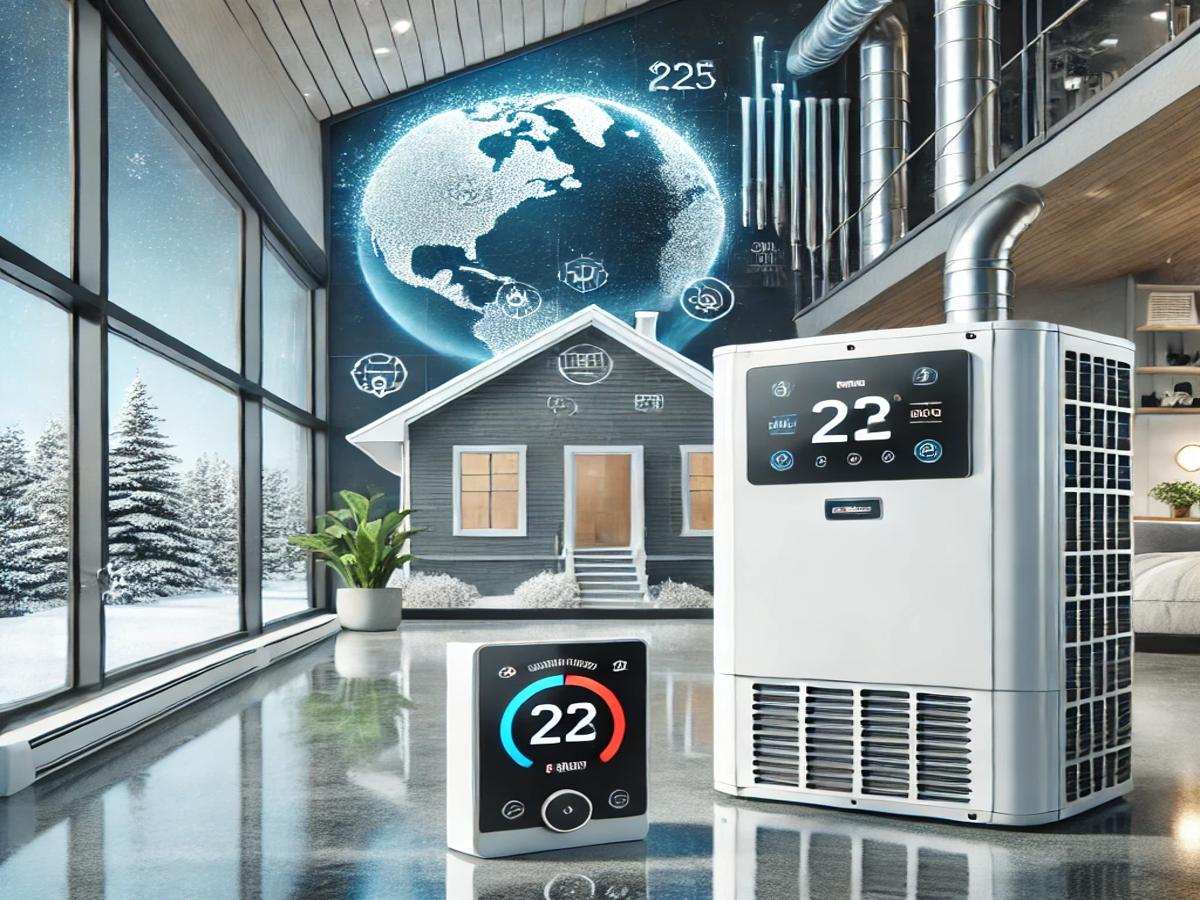Saskatchewan’s extreme weather—harsh winters and warm summers—makes an energy-efficient HVAC system essential for comfortable living. Investing in an advanced system can reduce electricity costs, lower carbon footprints, and enhance indoor air quality.
1. Understanding Energy-Efficient HVAC Systems
Energy-efficient HVACs use advanced technologies such as variable-speed compressors, zoned cooling, and heat recovery systems to optimize energy use. Benefits include:
- Lower electricity bills
- Reduced environmental impact
- Improved indoor air quality
- Longer system lifespan
2. Factors to Consider When Choosing an HVAC System
Before purchasing a new HVAC system, consider:
- Saskatchewan’s Climate: Systems must perform well in freezing winters and hot summers.
- Energy Ratings: Look for SEER (Seasonal Energy Efficiency Ratio) and HSPF (Heating Seasonal Performance Factor) ratings.
- Smart Features: Wi-Fi-enabled and AI-driven HVACs enhance efficiency.
- Installation Requirements: Some units need professional installation for optimal performance.
3. Top 5 Energy-Efficient HVAC Systems
Here are the best HVAC systems designed for energy savings and performance in Saskatchewan.
Mitsubishi Electric Zoned Comfort Solutions
- Efficiency: SEER 30+, HSPF 13.5
- Features: Zoned cooling/heating, whisper-quiet operation
- Pros: Custom temperature control, ideal for multi-zone homes
- Cons: Higher upfront costs
Trane XV20i Variable Speed Heat Pump
- Efficiency: SEER 22, HSPF 10
- Features: TruComfort technology, humidity control
- Pros: Quiet operation, high energy savings
- Cons: Requires regular maintenance
Carrier Infinity 26 Air Conditioner
- Efficiency: SEER 26
- Features: Greenspeed intelligence, variable-speed compressor
- Pros: Superior cooling, eco-friendly
- Cons: Premium pricing
Lennox SL28XCV Air Conditioner
- Efficiency: SEER 28
- Features: SilentComfort, iComfort thermostat compatibility
- Pros: High energy efficiency, smart home integration
- Cons: Costly replacement parts
Daikin FIT Heat Pump System
- Efficiency: SEER 18
- Features: Compact design, inverter technology
- Pros: Affordable, low noise
- Cons: Not ideal for extreme cold temperatures
4. Smart HVAC Technologies for Enhanced Efficiency
Adding smart thermostats like Ecobee and Nest can further optimize energy consumption by learning user preferences and adjusting temperature settings accordingly.
5. Cost Savings and ROI of Energy-Efficient HVACs
While upfront costs for high-efficiency HVACs can be high, the long-term energy savings often justify the investment. For example, a high-efficiency system can save up to 40% on energy bills annually.
6. Best HVAC Maintenance Tips for Efficiency
- Replace air filters every 2-3 months
- Schedule annual servicing
- Keep vents unobstructed
- Use programmable thermostats
7. Government Incentives and Rebates in Saskatchewan
Homeowners can take advantage of energy-efficient rebates through programs like:
- Canada Greener Homes Initiative (up to $5,000 in grants)
- SaskPower Energy Efficiency Rebate
8. Installation and Professional Services
Professional HVAC installation ensures optimal performance and efficiency. Always hire certified technicians and check for local rebate eligibility.
9. Conclusion
Investing in an energy-efficient HVAC system ensures comfort, cost savings, and sustainability for Saskatchewan homes. By choosing from the top options listed, homeowners can reduce energy bills and carbon footprints while enjoying year-round comfort.
FAQs
1. What is the most energy-efficient HVAC system for Saskatchewan homes?
Mitsubishi Electric Zoned Comfort Solutions and Lennox SL28XCV offer the highest efficiency ratings.
2. How much can I save annually with an energy-efficient HVAC?
On average, homeowners can save 30-40% on energy bills compared to standard units.
3. Are there any government rebates for energy-efficient HVACs in Saskatchewan?
Yes, the Canada Greener Homes Initiative and SaskPower rebates offer financial incentives.
4. How long do energy-efficient HVAC systems last?
With proper maintenance, these systems can last 15-20 years.
5. Can I install an energy-efficient HVAC system myself?
Professional installation is recommended to ensure efficiency and eligibility for rebates.
6. Are smart thermostats necessary for energy-efficient HVACs?
While not mandatory, they enhance efficiency and maximize energy savings.


